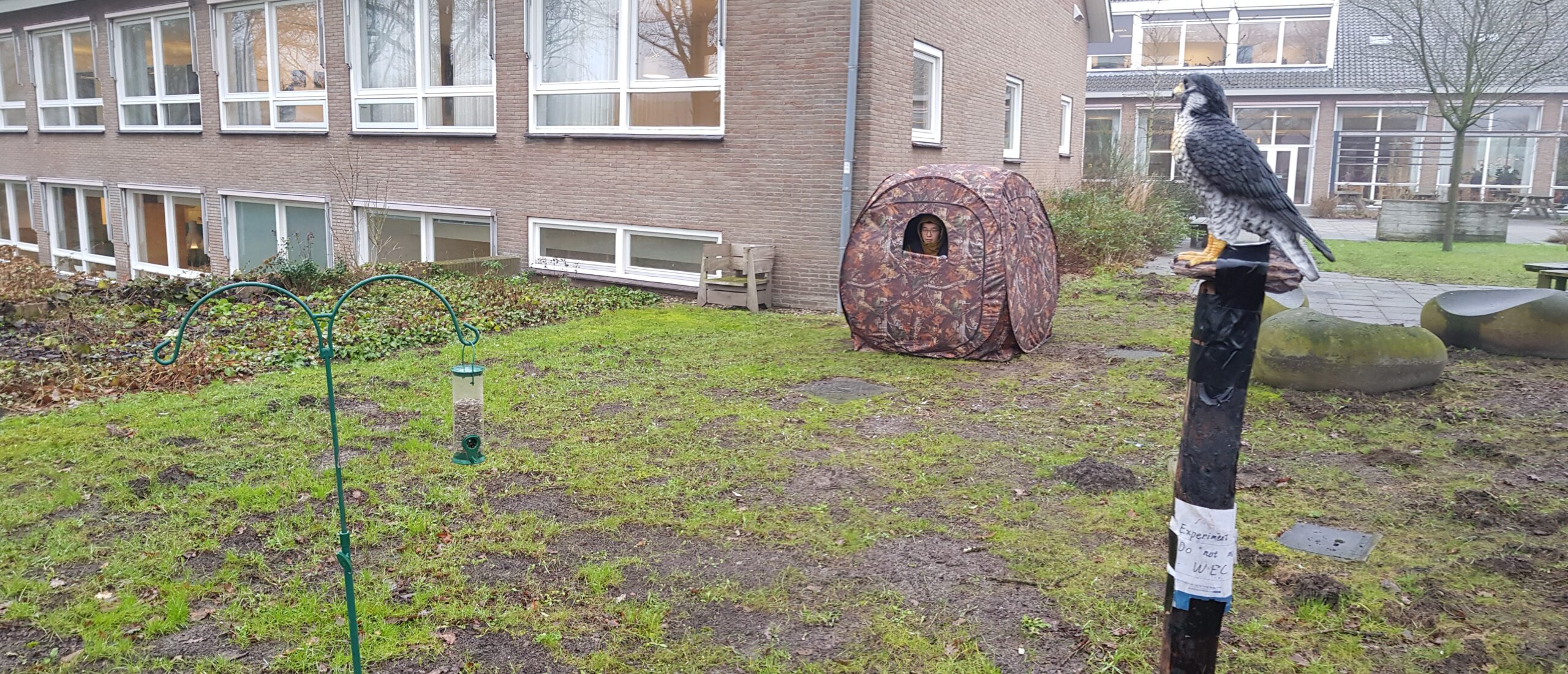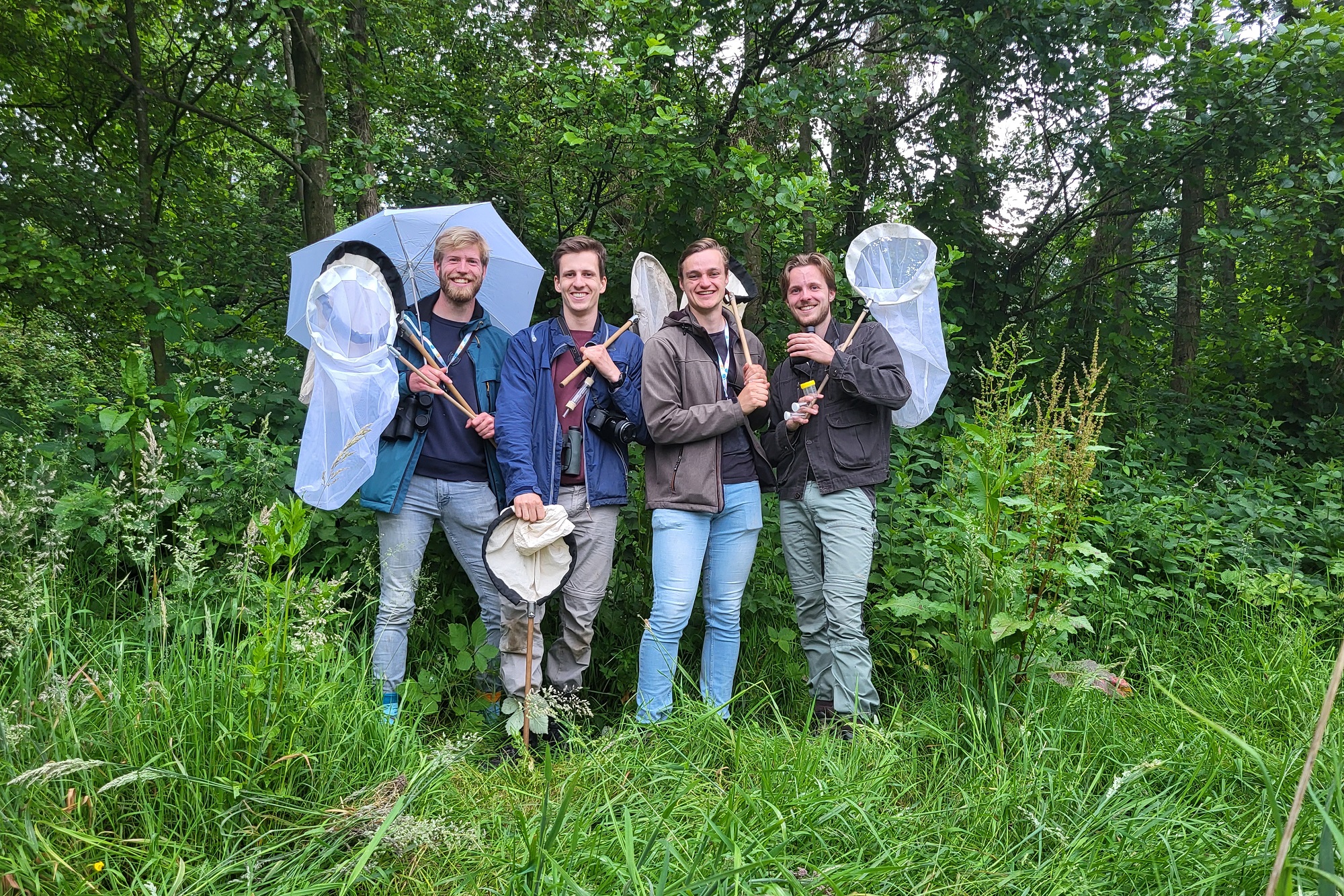Kees van Oers, who was inaugurated at the end of February as professor by special appointment of Animal Personality, investigates this complex relation. He has been doing research on great tits at the ecological institute NIOO-KNAW since 1998.
Van Oers has been working at NIOO/KNAW since 1998 researching the personality of great tits, and recently gave his inaugural speech. His research focusses on how differences in personality affect behaviour and reproductive success. And of course the question that is always around the corner in biology: is it the genes or is the environment decisive in the development of that personality?
How do you identify a great tit’s personality?
‘Our standard test is simple. We put a great tit in an unfamiliar space without many stimuli and watch how he explores the space. The test reflects great tits’ explorative behaviour. Are they extravert, inquisitive and aggressive, or just the opposite? There are also tests for looking at finer details of behaviour. How do the birds react to objects in a space, and what happens if you put certain personality types together?’
The great tit is a model bird for behavioural studies because it is common and quite resilient. But aren’t there much more interesting birds, as far as personality goes?
‘It is difficult to measure personality differences between species. When you develop a test you have to think in terms of the species, because the test needs to be geared to the species’ ecological behaviour. A foraging great tit explores its surroundings. But a pied flycatcher, for example, sits still and looks around him. Only if he spots prey does he fly off towards it. If you used the open field test for great tits on pied flycatchers, you wouldn’t detect any personality differences.’
Some of them really approach me and scold me.
Kees van Oers
So do the great tit results tell you anything about other animals?
‘What interests us is not personality as such, but the underlying question: is variation in personality important for a species’ evolutionary success? Why do great tits lay so many eggs, and how much of a role does personality play in that? If that brings great tits evolutionary success, in the sense of fast adaptation and therefore fitness, the same will apply to other species. You don’t have to know all the details of the personalities of those other species. It’s a question of generic processes.’
How do you observe a great tit in nature?
‘I don’t see the great tit just as one species like all the others. I always try to identify the individual. I pay attention to the colour, the gender, to whether it is bold. When I go for a walk in the woods with my wife, she sometimes jokes: it seems as though those birds know you are coming. Alarm calls straightaway. Some of them really approach me and scold me.’
Can comparisons be drawn between personality in great tits and in humans?
‘To some extent, yes. Take the dopamine system. That generates positive or negative feedback when animals behave in certain ways. Mountaineers, for instance, get a stimulus within the dopamine circuit. The higher the mountain, the bigger the stimulus. And in great tits you can see a relation between the expression of the gene for dopamine and inquisitive behaviour. But that plays a limited role in both humans and animals: it explains only 2.5 per cent of the variation in this behaviour.’
We still don’t know much about great tits’ brains.
Kees van Oers
What will the research focus on in the near future?
‘We want to study how personality changes over time under different conditions, by changing the size of the brood, for example. We’ll remove some of the young and let them grow up in different conditions. What are the consequences of that for personality and behaviour? So this is about the nature or nurture issue. I also want to find out where in the great tit’s brain those processes take place. Are certain areas of the brain more important than others? We still don’t know much about great tits’ brains.
And any teaching plans?
‘I’ve been running modules on personality in existing courses for 10 years now. I want to take that further with an in-depth course of my own for Master’s students. It will be about asking the right research questions. Anyone who works with animals needs to know that personality is very significant to the outcome of the research.’

 Photo Perro de Jong (NIOO-KNAW)
Photo Perro de Jong (NIOO-KNAW) 


